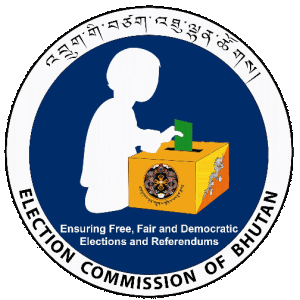5.5 Chapter Summary
Real Life Example: Voter Education for a First Election

In 2006, the King of Bhutan, Jigme Singye Wangchuck, abdicated the throne and decided to hold elections for the first time in the Kingdom’s history. One small problem: the citizens didn’t know how to vote. After living in a hereditary monarchy, many citizens were unfamiliar with the process of a democratic election. As a form of voter outreach and education, a mock election was held so voters could learn about the process (Sengupta, 2007).
Chapter Summary
In this chapter,
- Election administration is a complex, time-sensitive process involving voter list verification, candidate certification, and the hiring of thousands of workers, all coordinated by Electoral Management Bodies (EMBs), which differ by country in structure and independence.
- EMBs can be independent (like in Canada and Australia) or government-run (as in many parts of the U.S.), with varying degrees of insulation from political influence, and can operate centrally or through decentralized provincial or local offices depending on the country’s structure.
- Hiring and staffing elections require a massive temporary workforce, especially poll workers and officials, who perform tasks like voter check-in, ballot distribution, and vote counting; however, there are growing issues with recruitment and retention due to low pay and safety concerns.
- Compiling and maintaining voter lists is crucial to election integrity; countries with automatic registration (e.g., Canada and Germany) differ significantly from the U.S., where registration is more fragmented and often politically contested, and where voter purges have led to errors and disenfranchisement.
- Establishing election timelines is a key part of EMB duties, with some countries operating under fixed election calendars (e.g., the U.S.) and others needing to respond quickly to unexpected elections (e.g., New Zealand), all while managing deadlines for registration, nominations, and voting logistics.
- Candidate and party registration vary by electoral system, with plurality systems relying on district-level nominations and proportional systems on party lists, all requiring candidates to meet specific legal criteria; political parties must also follow registration rules to be recognized officially.
- Voter education and outreach are essential EMB responsibilities, particularly for underrepresented groups; tools like Canada’s online voter information portal are examples of resources to support public engagement and access to the democratic process.
- Monitoring and enforcement of election laws, including campaign finance, is necessary to uphold election fairness; however, enforcement powers and effectiveness vary. Canada has mechanisms for investigating misconduct, while the U.S. Federal Election Commission often struggles with partisanship and deadlock.
OpenAI. (2025, June 5th). ChatGPT. [Large language model]. https://www.chatgpt.com Prompt: Can you please summarize the passage into 8 key points with no additional bullets? Edited & Reviewed by author.
Key Terms
- Automatic Voter Registration – A system in which eligible individuals are automatically registered to vote through interactions with government agencies, reducing the burden on individuals to register themselves.
- Campaign Finance – The regulation and tracking of money spent by candidates, political parties, and other groups during election campaigns to ensure transparency and fairness.
- Electoral Calendar – A timeline of events and deadlines leading up to and including election day, such as registration deadlines, candidate nominations, and ballot printing.
- Electoral Management Body (EMB) – An organization responsible for administering elections, which includes planning, staffing, maintaining voter rolls, and ensuring election laws are followed. EMBs may be independent or part of a government.
- ERIC (Electronic Registration Information Center) – A voluntary collaboration among U.S. states to improve the accuracy of voter rolls by identifying duplicate, outdated, or invalid registrations.
- Foreign Interference – Efforts by foreign governments or actors to influence or disrupt a country’s election process, often through digital or covert means.
- Independent Electoral Agencies – Report to parliament, but manage their own budget and otherwise operate independently of the executive branch.
- Nomination Paperwork – Forms and documentation required for a person to be officially recognized as a candidate in an election, often including signatures from eligible voters and other legal qualifications.
- Plurality System – An electoral system in which the candidate with the most votes in a district wins, even if they do not receive more than half of the votes (also called “first-past-the-post”).
- Poll Watchers – Volunteers, often affiliated with political parties, who observe the voting and counting process to ensure fairness and transparency. They are not official election staff.
- Poll Workers – Temporary election staff who work at polling stations and handle duties such as checking in voters, verifying identity, distributing ballots, and assisting with voting.
- Proportional System – An electoral system where parties receive seats in proportion to the number of votes they receive, typically using party lists rather than individual candidates per district.
- Robocall – An automated phone call that delivers a recorded message. In elections, robocalls can be used for voter outreach—or, controversially, for misleading voters.
- Voter Purges – The practice of removing names from the voter roll, typically to eliminate duplicate, deceased, or inactive voter registrations. While intended for accuracy, they can sometimes lead to errors or disenfranchisement.
- Voter Roll – An official list of individuals eligible to vote in an election. Also referred to as the voter list or voter registration list.

